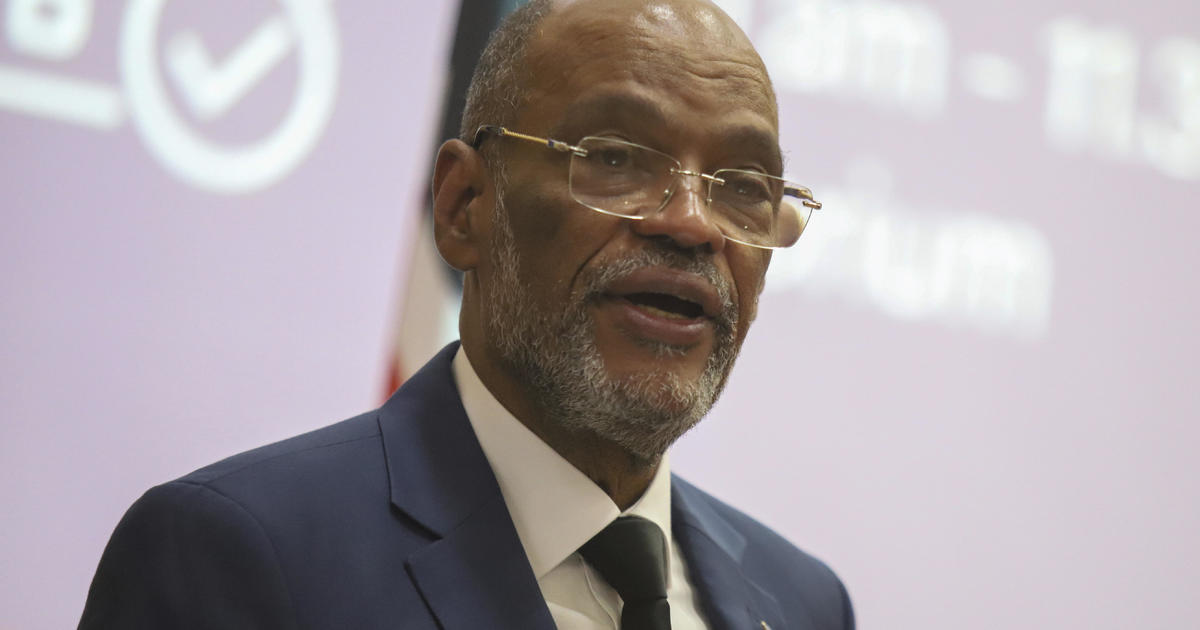Helping asylum seekers in New York City
Natalia Russo: I think the political nature of it makes people shy away from the topic.
Anderson Cooper: How so?
Natalia Russo: There's been some criticism that we're enabling, you know, criminals, we're enabling these immigrants that shouldn't be here. What I see is, they're becoming Americans, right before our eyes. And we will not turn them away, never.
This week on 60 Minutes, Anderson Cooper reported on the thousands of migrants who have arrived in New York City as part of a large operation by Texas Governor Greg Abbott to bus migrants released from federal custody along the U.S.-Mexico border to Democratic-led jurisdictions, including New York City.
CBS News immigration reporter Camilo Montoya-Galvez helped the 60 Minutes team with the story, including by translating some of the interviews with the Spanish-speaking migrants and by helping them contextualize the longstanding systemic issues faced by the U.S. immigration and asylum systems.
60 Minutes went to New York City's Port Authority bus terminal, where they found that the burden of accommodating these migrants has fallen on local nonprofits and everyday volunteers. One of those volunteers is Power Malu, who runs the group Artists-Athletes-Activists, a nonprofit organization that has been helping asylum seekers by giving them food, donated clothing, and other services.
Malu is often the first volunteer the migrants see because he boards the buses before the people are off-loaded. Malu tells them where they are, why they are in New York City, and what type of services they will be able to access.
Anderson Cooper: Why is it so important to you to get on that bus and welcome people, even before they get off?
Power Malu: As a representative of New York City, I say, "You know what? They're coming here to New York, it's my duty as a New Yorker, as a true Yorker, to welcome them with love, to welcome them with dignity, and with care, and to be the ones that are going to let them know that they are welcome here." Yes, immigrants are welcome here.
Anderson Cooper: And that makes a difference?
Power Malu: It makes a huge difference. Especially in the kids, the babies that come off the bus.
Because of the influx of migrants from the U.S.-Mexico border, New York City's public school system has had to absorb several thousand migrant children in a very short period of time. Many of these children don't speak any English and need English language instruction, as well as bilingual teachers. City officials estimate that educating these migrants will cost tens of millions of dollars.
Juan Abreu is a parent-student coordinator at one of the city's public schools, where he has been helping enroll migrant children in school. He has also been helping the families find hot meals and other necessities, including laundry services.
Juan Abreu: So what they need here, especially here in New York, now that the winter is coming, we're looking at, like, the weather dropping. So coats, long-sleeved sweaters, hats. They don't have any of that. And they don't know is about to happen. They think that this is their coldest. But they have not witnessed what real winter is — it's about to happen.
Camilo Montoya-Galvez: Is there anything, Juan, that you think the city or the state or the federal government can be doing to help schools like this one help these kids?
Juan Abreu: Give us better resources. In the sense of, what's the game plan for, like, the parents that are already here? Like, they don't know themselves. Are they going to be able to work? Can they work? Is it possible? Because right now, they're just sitting and just not knowing what to do.
Natalia Russo: This is a humanitarian crisis. These folks don't speak the language, they're not part of this culture yet.
Dr. Natalia Russo is the principal at a public school on the Upper West Side. Russo's school has been receiving dozens of migrant children from several countries over the past few months, including from Ukraine, Venezuela, and other Latin American countries.
Natalia Russo: When they're walking down the street, they're hearing white noise. At least the Americans that are in temporary housing, they can navigate. You know, they can go around the city. They know where to go. They know how to go to this agency. These folks don't know anything. So it's our responsibility, frankly, I feel, morally, to help them. Because they're entrusting their children to us. Whether it's by choice or not, they're here. They've arrived. We're helping them, and all we want to do is help them get on their feet.
The educators 60 Minutes spoke to said they are not paying much attention to the political debate over the migrant crisis along the U.S.-Mexico border. Instead, they said they are just addressing the immediate needs of a vulnerable population that has arrived to their city. They told 60 Minutes that, if they don't do this work, no one else will.
Natalie Russo: I definitely don't think there's anyone, you know, south of the border that's thinking, "Oh, let's make this journey because if we do, we can get to P.S. 145, and they'll help us." You know, I don't think it's that.
Anderson Cooper: But in terms of seeing, "My kid can have a better life, my child can go to a good school, they can have more opportunities"?
Natalia Russo: Right. I mean, I think that's the drive. That is what makes these families take on the danger that they're putting their families through. Do I think it's encouraging it? It's not a question that I think about. Because I can only think about when they're here, when they're in my charge, when they're sitting in my classroom, when they're sitting in the cafeteria: I need to know that they're safe.
The video above was produced by Brit McCandless Farmer and Will Croxton. It was edited by Will Croxton.



